- All
- [Open Science Policies]
- Auvergne-Rhône-Alpes
- Bourgogne-Franche-Comté
- Brittany
- Centre-Val de Loire
- Corsica
- DROM-COM
- Grand Est
- Hauts-de-France
- Île-de-France
- Normandy
- Nouvelle-Aquitaine
- Occitania
- Pays de la Loire
- Provence-Alpes-Côte D'Azur
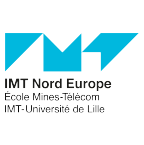
IMT Nord Europe
IMT Nord Europe is one of the 8 leading engineering and management schools that make up the Institut Mines-Télécom. The strength of the group lies in the complementary nature of its schools and their cohesion, based on a common vision: training at the service of companies, economic and territorial development, contribution to innovation and entrepreneurship.
IMT Nord Europe is also a major player in research and innovation in the Hauts-de-France region: its 3 research centres are at the heart of ecological, digital and industrial transformation.
HAL portal
Open Science Policy
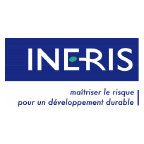
Ineris – French National Institute for Industrial Environment and Risks
The French National Institute for Industrial Environment and Risks (Ineris) is an industrial and commercial public establishment under the aegis of the Ministry of the Environment.
Ineris was created in 1990 as a result of the merger between the French Centre for Studies and Research into Collieries (Cerchar) and the Institute of Applied Chemical Research (Ircha).
It has accumulated nearly 70 years of expertise and knowledge.
The Institute’s mission is to contribute to the prevention of risks caused by economic activities to health, environment, and the safety of people and goods.
It conducts research programs with the aim of improving our understanding of the phenomena that are likely to lead to risk situations or damage to health and the environment, and of further developing its expertise in prevention. It works to expand its scientific and technical capabilities in the fields of accidental risk, chronic risk, and ground-level / subterranean risks (mining), and makes them available to public authorities, local authorities, and businesses to help them make the decisions best suited to improving environmental safety.
Read more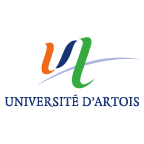
Artois University
Artois University is spread over several medium-sized towns of the Nord-Pas-de-Calais region and is composed of 8 Faculties, 2 University Institutes of Technology (IUT), a Further Education Department and 15 Research Centres.
Since its beginnings in 1992, Artois University has established itself as a major contributor to social mobility and has fostered a welcoming and stimulating environment favorable to both study and culture.
HAL portal
Open science policy
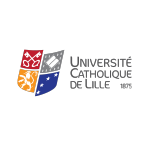
Université catholique de Lille
The Université Catholique de Lille was founded nearly 150 years ago. Its longevity results from a balance between what unites our institutions and what is at the basis of their singularities: their three academic missions: education, research, and service to society.
Research activities are supported by almost 850 teachers, researchers and university hospital staff and more than 200 doctoral students. Their activities cover more than 60 academic disciplines and are carried out within 12 research units, either under their own auspices or under joint supervision, in particular with the CNRS.
Read more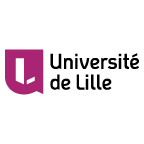
University of Lille
The University of Lille occupies a strategic position at the heart of Northern Europe. It boasts an outstanding cultural and scientific heritage that is etched into the Hauts-de-France Region’s history, and has established itself as a key player in the region for training, research and innovation, and commitment to social issues.
Portail HAL
Open Science Policy
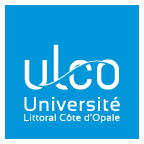
Université du Littoral Côte d’Opale
ULCO was created in 1991, as part of new universities program, from older universities establishments.
Read more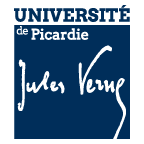
Université de Picardie – Jules Verne
The UPJV was created in 1969 as part of an unprecedented reform of French higher education (law of 12 November 1968). In the UPJV’s half century of existence, it has become a major player in the cultural, social and economic development of its territory. It has developed strong links with the local industrial base, which it stimulates through its innovative research activities, but also through the training of highly qualified executives.
The level of excellence of its collaborative and creative research, and its delocalised diplomas, allow it to shine beyond the Hauts-de-France region, in France and internationally. Attached to the values of humanism and the sharing of knowledge, the UPJV is a regional university open to the world, committed for more than 50 years to the service of people and society!
Read more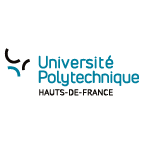
Université Polytechnique des Hauts-de-France
Université Polytechnique des Hauts-de-France stems from the evolution of Université de Valenciennes et du Hainaut-Cambrésis.
In 2016, leaning on the multi-disciplinarity of the institution (except for health studies), Professor Abdelhakim Artiba, University chairman, united the university community on a unique projet in France: a polytechnical university. In Septemer 2019, France state created the Université Polytechnique des Hauts-de-France through a decree, and approved its statutes of Experimental institution.
Nowadays, the institution offers 160 trainings, divided up in 3 composing institutions:
- Institut National des Sciences Appliquées (INSA) Hauts-de-France
- Ecole Supérieure d’Art et de Design de Valenciennes
- Ecole Supérieure d’Art de Cambrai.
and 2 components:
- Institut Universitaire de Technologie (IUT)
- Institut Sociétés et Humanités.
Research at Université Polytechnique Hauts-de-France relies on 8 laboratories:
- LAMIH : Laboratoire d’Automatique, de Mécanique, d’Informatique Industrielles et Humaines
- LMCPA : Laboratoire des Matériaux Céramiques et Procédés Associés
- IEMN DOAE : Ultrasons, télécommunications, micro-systèmes acoustiques, électronique
- LAMAV : Laboratoire des Mathématiques et ses applications
- DeVisU : Information – communication / Design, Visuel, Urbain
- DeScripto : Cultures, arts, littératures, histoire, imaginaires, sociétés, territoires, environnement
- CRISS : Centre de Recherche Interdisciplinaire en Sciences de la Société
- LMI : Laboratoire de Mathématiques pour l’Ingénieur.
and 3 axis:
- Transportation, Mobility and Smart, safe and sustainable urbanism
- Engineering for health, disability and silver autonomy
- Creation: Sciences, Arts and Industries (conception, writing, imaginaries, representations).
HAL portal
Open Science Policy
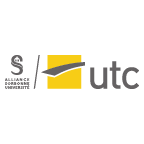
Université de technologie de Compiègne
UTC, a public institution with a scientific, cultural and professional nature, was born in 1972, as an experimental technology university.
Be it about education, research, international perspective or interaction with companies, UTC regularly ranks at the top of engineering schools.
HAL portal
Open Science Policy